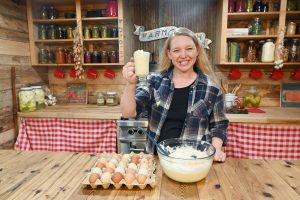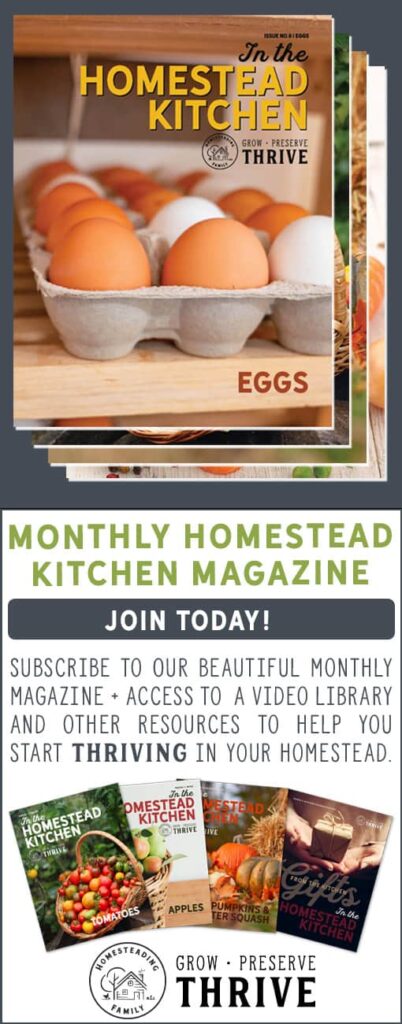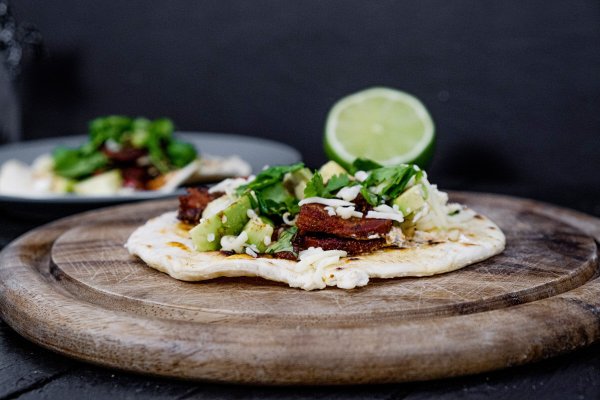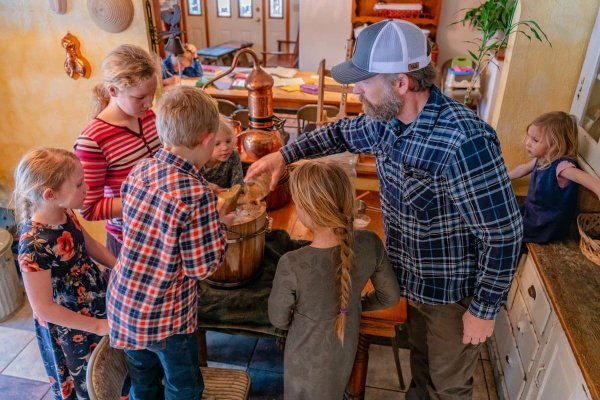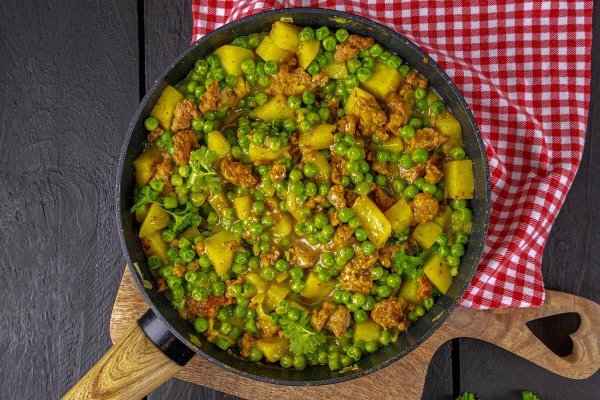Listen and Subscribe: Apple Podcasts | Spotify | iHeart | Google Podcasts
COVID-19, flu season, civil unrest, education disruption, supply and demand issues. There’s a lot of challenges, uncertainty and fear affecting everyone right now, including homesteaders, in real, new and unprecedented ways.
What are the things you can do now to be able to move through this season with confidence and positivity? Josh and Carolyn talk through some of the ways they are dealing with these obstacles and the actions you can start taking today to be more prepared.
In this episode:
- Harvesting season is still in full swing for Carolyn and Josh continues to make progress on the new addition.
- Question of the week: Are Josh and Carolyn planning on keeping bees?
- COVID-19 + Flu season is coming and why it’s important to take care of yourself physically, emotionally and spiritually, now more than ever.
- The current challenges with supply and demand and what you need to be aware of as you’re planning ahead.
- Why it’s a good idea to start stocking up on monetary resources, future supplies, and bulk items now.
- How the education disruption is affecting our children and the benefits of homeschooling to give them a consistent routine.
- The power of prayer and connecting with people in your own circle of influence to build resilience and stability.
- Remembering to take a break from the news and practice social distancing from fear and negativity.
- How to create some simple moments with the family to encourage hope and happiness during this time.
Resources:
- MadeOn skincare products (use code “homesteadingfamily” for 15% off your purchase)
- Follow Homesteading Family on Instagram
- Follow Homesteading Family on Facebook
Josh: Hey you guys, this is Josh.
Carolyn: And Carolyn.
Josh: With Homesteading Family. On this week's episode of the Pantry Chat-
Carolyn: ... we are going to be talking about the homesteader's response to COVID, civil unrest, and who knows what else is going to come at us in 2020?
Josh: This week's episode of the Pantry Chat is brought to you by BCS Two-Wheel Tractors. Now, you may have already heard of the legendary versatility of BCS Two-Wheel Tractor for small farms and homesteads. We love ours here on Riverbend. It's the most efficient and time-saving choice for a small acreage, building raised beds with the rotary plow attachment, mixing in soil amendments with the power harrow, and shredding cover crops in place with the flail mower.
Josh: But a BCS Two-Wheel Tractor is more than just a gardening tool. BCS powers more than 40 high quality PTO-driven attachments, each with the power and performance of an all-gear drive transmission. Blow snow with the BCS's snow thrower, chip and shred limbs and sticks with the chipper shredder, clean up your property with the pressure washer, haul up to 1,100 pounds, including yourself, with a ride-on utility tractor, and even spread compost over 30-inch beds with the spreader attachment. Yep, BCS is pretty much the Swiss Army Knife of power equipment for your homestead. Check out bcsamerica.com to see the full range of tractors and attachments and find your nearest BCS dealer today. That's bcsamerica.com.
Josh: All right. So 2020 has been a year of uncertainties.
Carolyn: Yeah, there is a lot that's going on and I know everybody is feeling it on some level.
Josh: Absolutely, from COVID to just the protests and riots and general civil unrest.
Carolyn: Yeah, to the disruption of supplies and of course the upcoming elections.
Josh: Which is just looking to be one of the most contentious elections ever. There's just a lot of stuff going on, and we want to take a few minutes to talk about it and help shape a perspective on how as homesteaders or any kind of mentality that we can share as a positive outlook and positive solutions for this time. There's a lot of uncertainty and a lot of challenges.
Carolyn: Yeah. As always, we like to look at the solutions and what we can do about the problems here at Homesteading Family. That's really important to us, and so today we are going to take a little look at the problems, what's on the table, what's out there right now in the world, but we're also going to be talking about the solutions and the things we can be doing right now to make a difference in our own lives and in the broader sense of the world.
Josh: Well, and the difference of the lives of the people around you and how we can move through this time with confidence and positivity.
Carolyn: Absolutely.
Josh: But hey, before we jump into that, we need to catch up a little bit. What's going on with you? What have you been up to this past week?
Carolyn: Yeah. You know, we're just still right in the middle of harvest season, so I keep saying, "Green beans and cucumbers," and I feel like I'm stuck with green beans and cucumbers. But we keep bringing them in, we keep canning them. We're making all sorts of different types of pickles. I'm very excited about that. And we even have some tomatoes starting to come online, which far North Idaho here, sometimes tomatoes are a challenge. Okay, most of the time tomatoes are a challenge, but we're excited to be getting some ripe tomatoes right now, so that's really exciting.
Josh: I think the DIY hoop house is helping.
Carolyn: Yes. Been a big help this year. And we have onions out of the ground now, ready to go in to be cured.
Josh: Got to get that done in a day or two.
Carolyn: We're just dealing with all of this amazing produce that we're putting up for the winter right now.
Josh: You're doing good, getting everything up.
Carolyn: Thank you.
Josh: That is a lot going on.
Carolyn: What about you? What have you been up to?
Josh: Well, the main thing is just the addition we've got going here. We're kind of really going at it right now, framing, trying to get it framed up and dried in before weather comes, because mid-September, a little bit later, the weather starts hitting. Trying to get that done so the kids have a little extra space by the time we move into winter. And what else? Stacking logs, getting ready to cut firewood.
Carolyn: Yes, we need a lot of firewood.
Josh: We've got to get firewood split. We need about 10 to 12 cords of firewood here. We've got the logs stacked. It's now just carving out the time to buck them up and split them. And I haven't been getting into the garden as much as I usually do. We just released a video on, I think, 20 varieties that you can plant late summer. And I've got some of those in, but I'm not getting done what I usually would, just because there's so much to do right now with this addition going on. So we're going to miss out a little bit. It's good you're getting everything up, because we're not going to have quite as much fresh eating this fall as we usually would, putting so much energy into the addition.
Carolyn: Absolutely. I love this phase of building right now. The walls are going up. That framing phase, just things happen so fast that you feel like, oh, it's going to be done in two weeks if we keep going at this pace, right? And then it slows down.
Josh: It does. But you know, it's really fun. We've got some friends here helping us, and then all the kids are jumping out there at different times and helping. The girls have been out there helping. They were screwing down the floor in their bedroom. Make sure when you're doing projects, even like this, to find spaces, that's a big thing for Carol and I, that we try to share with the family and we try to share with you guys, to include everybody. Find ways to include everybody. We've got little kids just picking up scraps of wood and nails and different people banging nails and hammering, even if they don't really know how. It's really fun. It's all hands on deck.
Carolyn: Even sweeping, sweeping up the job site and things. Everybody loves being involved.
Josh: They do, and so it's really cool. I'm having a good time working with everybody out there.
Carolyn: Oh, good. Yeah. Fun to see it come together.
Josh: Absolutely. Well, we better keep moving along and let's get to our question of the day. Oh, I guess we can both talk about this one, but I'll throw it at you first. Kelly Grantham on the skills you need to start homesteading asks, "Why don't you keep bees?"
Carolyn: Oh, Kelly, we wish we were keeping bees, but you know what? You can only do so many things in any one given year. And there's actually even a deeper answer for this particular piece of property, but we have never yet kept bees. But it is on the list of things to do.
Josh: Right. And we all have to order our priorities and our needs, and so we try to priority the things that are going to be the most productive and effective for us. And while we would love to be producing our own honey and plan to eventually, it's just down a little bit lower on the list on skill development, and particularly, as Carolyn mentioned, on this property. This property, we're tucked back in the woods. There is not a lot of flowers and things for the bees to feed on. So we are focusing on a greater diversity of perennials and pasture plantings that are going to start to bring in the flowers that those bees really need.
Carolyn: Absolutely. We actually have the benefit of having had a beekeeper live on this property, who is now a local beekeeper. And he tried to keep bees here back in the '70s and said there were just so many challenges, because there just wasn't enough bee food in the area. So we are getting to work on that first, and hopefully within the next year or two...
Josh: Yeah, it's going to probably be two years, I guess. It's kind of on me to get that program going, and there's just a lot. We've got a lot of infrastructure. We need to get trees in. We've got 50-plus trees in the nursery, so that's going to take a season to get planted.
Carolyn: That's exciting.
Josh: So yeah, I'm going to say it's at least two years out. Yeah, yeah.
Carolyn: But hopefully it's on the way.
Josh: But we'll get there. It is part of the plan. All righty. Well, let's dive in. These are some tough topics we're going to talk about here today. People are impacted all over, obviously, the United States and in the world, and it's a tough season. Our opinion is that it is going to continue to be a tough season, that these circumstances aren't going away after the election, as I hear a lot of, it's all going to get better after the election. I don't personally think so. And there's just a lot of stuff going on and we need to take a realistic look of what we're dealing with and how to prepare for it.
Carolyn: There has got to be longterm economics effects from this. And we've got so many people now unemployed, we've got so many things kind of shifting on us, that this just can't disappear overnight. It can be a really scary thing to be sitting somewhere and looking at the unrest all around you and that uncertainty all around you. We've lived in a fairly stable culture, really, for the last several generations, and so we're not used to living in this kind of moment-by-moment unrest. I know a lot of people are feeling a heightened sense of anxiety, stress, worry, and regardless of what you believe about any of the things that are happening, it affects us all. And so that's what we're going to be talking about today.
Josh: Absolutely. And I just want to play off of that, what you were mentioning there as a starter to all of those of you that are going to email. Yeah, and they're going to comment about some of these topics and what's right, what's wrong, and you think it's this way or that way. We're not speaking to whether any particular thing is true or false or whether it's right or wrong. The reality is, is we're dealing as a culture with a variety of situations. I definitely think that they are being hyped up and played up and that that fear is being generated and that a lot of the things are not as big of a deal in actuality as the fear that's being generated.
Josh: However, because of that fear that's being generated, because of people's reactions, and because of realities of economics and different things, there are a lot of challenging situations. And so that's what we're dealing with here today, not really that discussion of what's true or false or who's going to be president or what's right or wrong about the protests or any of that. The reality is, all of this affects us, and it's going to continue to affect us in real ways.
Carolyn: Absolutely. So do you want to talk about some of the things that are on the table right now that people are dealing with and seeing that are really bringing some of the instability out in our culture?
Josh: Right, yeah. And obviously, top of the list is COVID.
Carolyn: COVID, but now you have a new element coming out, which is this COVID times the flu season and how CDC is now saying that we're going to have the worst flu season maybe ever in history, combined with COVID. And you know, that's a scary thing to hear that.
Josh: Well, it is a scary thing. And whether it's true or not, it looks like they're going to really drum it up, and they're going to really cause a lot of concern about that. Maybe it will be. We don't know. I don't think anybody knows. But it does increase the intensity of things, and we don't know what's going to happen. But it's going to continue to generate concern, and it may continue to generate some real problems within the workforce, within education, which we'll talk about here in a minute, and it's going to be part of what affects people.
Carolyn: Absolutely. Okay.
Josh: Let's see here.
Carolyn: We have some economic effects too here.
Josh: Yeah, and these are just the realities, right? Whatever we think about any of these, they are serious economic consequences. We are at a historically high unemployment rate, and there are issues because of that with supply and demand and supply and cost. It is hard to get a lot of things right now.
Carolyn: It really is, and some of the things seem silly. We were trying to get a bike.
Josh: Oh, trying to order a bike.
Carolyn: For our son's birthday.
Josh: Well, actually, I went to the bike shop. We've got to drive an hour for us to get to a bike shop, but that's a sizable town, and they had almost no bikes. Instead, it was four to eight weeks because of the worldwide bike shortage.
Carolyn: A bike shortage, yeah.
Josh: I mean, it's a bicycle. So it's not that you can't find bicycles, but finding certain things, it is getting more challenging. And we keep bumping into this, and I imagine you guys are too, on things in lots of different areas. And a lot of that is just, again, whatever you think about COVID, factories are working different, right? They are staffing differently. It's thinned out. Production has slowed down. And particularly something like bicycles, people are buying more of those things, because they're staying closer to home. That's just one little area. We've got that dealing with seeds, with canning supplies.
Carolyn: Well, and that's what I was going to say. It also goes into more serious areas of life, not just the leisure areas, which is, you're definitely seeing it in the leisure area department, but things like your canning supplies. Any sort of food preservation supplies really can be tricky to get right now. It's not that they're non-existent, they're just really hard to get.
Josh: Yeah. Food storage, and this kind of stuff I believe is going to continue to happen. We're going to continue to deal with a workforce that's diminished because of the way they're staffing because of COVID. And even the flu may play into that, if they drum that up or whatever happens. And so we're going to continue to be in this cycle of lower production, which means lower supply, and in certain areas higher demands, which makes things harder to get and more expensive. We need to be prepared for that.
Carolyn: Okay. Let's move on to the next one, which is education disruptions.
Josh: Right. This is huge.
Carolyn: And this is a big deal. Right now you have every single school district, and in some cases every single school, making different decisions about what is happening with the education on the ground. So if you are involved in the public school system, if you have children in the public school system, there's this yo-yo thing happening. Right now we're at home, but next month we may be back in school. I know in our area right now, two days a week you're in school, two days a week you're out of school.
Carolyn: Even if you are not feeling anxiety and stress over all of the things that are happening, this is going to create a lot of instability in your home, living in this moment-by-moment thing. We all know that children work well under habit. They work well under schedules. That's how our brains work. We learn well in that circumstance. And this is about as far away from that as you can get, and so this is going to have longterm education effects on generation of students.
Josh: Yes, it is. And it's got economic impacts too, as parents are figuring out how to shift and how to adjust with kids gone part of the time, home part of the time, lots of different requirements. They're having to do school on computers. It's just making a lot of families shift. That has an economic cost, as families figure out how to have somebody home or how to get help or tutors or all kinds of different things. It's an obvious problem that needs to be solved, but it's also adding to that list of stressors that people are following.
Josh: We could continue to go down the list. We're not going to really talk about the protests and the riots, but that's a whole nother factor that's causing a lot of concern, a lot of difficulty in a lot of places, obviously a lot of damage to property and even physical violence. And the media is going to continue to show us that. We're going to continue to see that. And I don't think with the elections coming that that feeling and even the actions that are happening are going to go away. That's probably going to continue to increase. And then who knows what's going to happen with the election, and if we're going to have accusations of voter fraud. It just looks messy and difficult.
Carolyn: It does. And one thing you can be absolutely certain of and guaranteed of in this time where you can't be guaranteed of just about anything is that the media is going to play up every single bit, ounce of drama they can get out of this, right? We've got to remember, the news is a business. It is a business. They want your eyeballs riveted on that news and on those headlines. And without making... some people have a lot bigger claims about conspiracy theories behind the news and all of that, but at a very basic level, the news is a business and they want you watching. They're going to do whatever it takes to have you stressed and keeping an eye on what's going to happen next.
Josh: The point that we're getting to is, what that causes, regardless of the reality of all those different situations, is it starts to cause fear. It starts to cause unrest, and it starts to cause irrational thinking that leads to decisions that affect our lives and particularly the availability of things that we depend on every single day. And that is happening. It has been happening. We think it's going to continue to happen.
Josh: And so we want to act in a positive way and a responsible way to deal with that ahead of time, especially for those of you in the homesteading world that are concerned about these things or whyever it is that you're there trying to grow food, preserve food. It's going to be hard to do some of these things, and we need to look out further ahead than just planning for the fall and just planning for the winter. I think we can start to dive in here to solutions, because it's really, we're all about solutions. We want to be thinking ahead and helping step through these times with, again, positivity and confidence, right? So you want to dive in, you want to tackle the first one here?
Carolyn: Okay, absolutely. First of all, is you need to take care of yourself, both spiritually, emotionally, physically, all of the different ways. You really need to take care of yourself. Some of the ways to do that is one, make sure you're really connecting with your faith and the people that can be supportive of that around you. But two, could I just say, turn off the news if it's stressing you out, please. Just turn it off. Turn off social media. I know you're probably watching us on social media right now, some form of media, right? But it's great to take a break, put it down and walk away if it's stressing you out.
Josh: Yeah, and take some times for reflection. Take some times for prayer, for going to the Bible and reading and studying and getting grounded. Take time for the relationships, for the people in your life, and not just to discuss these things and how to handle them, but take a break from it all and go do something fun. Go do something enjoyable to build up your spiritual and your emotional and your relational strength.
Carolyn: Yeah, absolutely.
Josh: The next thing on that is taking care of yourself physically, because the stronger you are physically, the better you can deal with emotional stresses, economic stresses.
Carolyn: Well, and vice versa, that those stresses are affecting you even if you're not walking around going, "Oh, I'm so stressed." Those things are affecting you physically too, and so you need to be addressing that, even if you're not feeling it, right? So it's kind of a cyclical thing there.
Josh: Absolutely. So be eating well, drinking lots of water. Be getting plenty of rest. These are all basic things that we should all know, but just giving you a reminder to think about these things.
Carolyn: Get some exercise.
Josh: Right. Be building up your immunity. I mean, flu season we know is a real deal, right? And COVID's a real deal on some level. And so we're going to be facing those things on top of all the stresses. So really, really be working to take care of yourself, keeping yourself strong, and that's going to help you feel positive. I know for me, when I start losing sleep regularly, just that alone, you just start to get worn down. It's hard to have a positive outlook. Or if I'm not eating, if I'm not drinking enough water, all those things start to stack up. And so we just really want to encourage you to take care of yourself. And of course, a lot of your moms out there, you've got families. Dads, be taking care of your family. And that just helps you stay strong and helps you be positive when there's all this other stuff going on.
Carolyn: You know, our 14-year-old daughter said to me the other day, "When I wake up and I start my day with a jog and I go out for a run, I feel better the whole day. I feel happier." And I think it's just so true. You have a lot better perspective when you can get out and get some fresh air and get your body moving.
Josh: Absolutely. Okay. Moving past yourself and starting to step in some actions, start saving both money and supplies. Start building up that savings account. We think it's a good idea to have some cash on hand. The things that are happening in our economy are unprecedented at this point, and nobody can predict the future, but it's just a good idea to maybe have some financial assets, not just in the bank, not just investments, but close to home, whether that's cash, a little silver, a little gold. That's just a good hedge for times when we're looking at the government basically printing money at will. And that has consequences somewhere. Whether we see that sooner or later, it's got consequences. So that's a good start. Please think about that and consider that.
Carolyn: Also, stocking up on supplies is really important. In fact, we did a video a month or two ago in YouTube that we talked about things that we really need to be stocking up for in case things get more difficult with the COVID scenario or any of these instability scenarios. You can check that video out on YouTube. But you know, let's talk for a second, because here we're telling people to save up money and to stock up on supplies. For a lot of people, those two things are hard to do at the same time, to save money and stock up on supplies.
Josh: It really is, yeah.
Carolyn: So what do you cut if you're trying to stock up and save money? You probably need to cut back on some of the leisure things, right?
Josh: Well, you need to cut back on some of the leisure things. And honestly, the more that you can bulk up on. Our dollar is always deteriorating, so the more you can bulk buy, the more food and more supplies that you could put in now, that's better than money in a savings account. You don't earn almost anything on money in a savings account, but you can be guaranteed that things are going to go up in price and that we may continue to face a scenario where things go up drastically in price. And so the things that you can buy now that you need and get on hand, regardless of scarcity, which we'll talk about in a minute, is very, very valuable. I look at that as money in the bank, literally. Better than money in the bank.
Carolyn: Yeah, because you're actually saving money on it. But the only way this works is if it's stuff you're going to use anyways. It doesn't work if you fill your basement with freeze-dried food that you're not going to touch unless the world is coming to an end, and then you don't touch it. Make sure you're just getting ahead on your purchases that you would make to feed your family anyways. And then you end up saving money in the long run, having what you're going to use already. You can't really go wrong in that scenario.
Josh: And I got to say, even though we're always talking about bulk buying and all the different scenarios to be prepared and save money, I think you bring out a good point. If you can't move to some of those things right now, like what Carolyn is saying, buy what you'll eat and what you can stock up on, just very clearly. Even if you need to stock up on that, you're not maybe going to go buy 200 pounds of wheat. Okay, but what can you buy and get on the shelves that you'll use through these different times? And then work towards the bigger goals.
Josh: Well, let's stay on that topic. I know we've got it listed a little bit differently, but let's just stay right in here since we're there. Some of the things, especially from the homesteading perspective and the growing your own food and producing that you need to be thinking about. Seeds is a big one. Seeds has been a challenge this year, and it's going to continue to be a challenge. We would promote buying next year's seeds now if you can. And you may have to wait for them, depending on what it is you're looking for, even now. Buy them now and store them well.
Carolyn: Yes. Think about things for next year, like your laying hens. If you're used to ordering in laying hens, I actually just ordered ours, and there are very, very few available for the remainder of this year.
Josh: Hens right now, right.
Carolyn: Laying hens, yeah. So think ahead of things that you might be making those purchases later and look into the availability of those things.
Josh: Yes. Your preservation supplies, canning jars, canning lids, canners. Even if they're not available right now, if you can get on the wait list, do it now. Get on there and wait. I mean, we're still waiting for a refrigerator that we were buying for a milk refrigerator. It was a particular kind with no freezer, and usually you can get it with a couple weeks, from our research. We've been waiting four months and we still don't know when we'll get it.
Carolyn: Yeah, we still don't have it. Yeah.
Josh: And we keep hearing stories like this pop up all over the place. So this is where we really want to encourage you to be proactive and think about whatever it is you need for resiliency and be really having a plan to start getting ahead on that now.
Carolyn: Yeah, because you're probably going to get on a wait list somewhere, so get on the wait list now. You know, a much more down home part of this is the holidays coming up. You guys, if you're going to be buying presents for your children, ordering a turkey from the grocery store, we don't really know what's going to be affected. I don't think anybody knows what is going to be affected in this scenario, but a lot of things are hard to get. So go ahead and start thinking ahead on the holidays too, if you have special family traditions that are going to make you guys feel more relaxed and more at home, more at peace, because you're able to keep those traditions going. Traditions are one of those things that keep us grounded in our place, help us feel like we're in the rhythmic pattern of a normal life. So think ahead to those things and make sure you've got plans made for actually being able to fulfill them and do those things. It's a really good one.
Josh: Absolutely. Okay, another one that is really impacting us that you talked about a minute ago, and that is the schooling issue and the challenge that so many people are facing with school. I don't know that this is going to go away the whole next school year. While that would be a nice optimistic viewpoint, I think the positive outlook says this is going to be who knows what? And so what is a positive solution to try to get rid of some of the unknown in this scenario?
Carolyn: Yeah, and that is to homeschool. I would just cut the cords right now with public school. Even if you don't plan on homeschooling longterm, the reality is, you're likely to be homeschooling at least part of the year, or at least doing school at home with your children. Right now is a great time to just say, you know what, let me just take over control of this so I can call the shots. And cut the ties to the public school if you are in a state where you're able to do that, and just add some stability back into your home and into your family.
Carolyn: When COVID came at first hit and everything was shut down earlier this year, it did not change our school schedule one bit, because we were homeschooling at home already. And you know, that's really helpful in a scenario where you have children. When you have children, they're feeling the stress of the world too. They're feeling when there's fluctuations and changes and when you're getting stressed as a parent, and so it's really important to just go ahead and try to make that as stable as you can for your own stress, but also for theirs. Not to mention the educational quality, because everybody's in uncharted ground right now.
Josh: Well, and it's just a fact that the educational quality, just the educational quantity is disappearing. It's being cut in half. For most things I read about around the country and the people that we talk to, it's just being cut in half because of the way they're trying to structure things to keep people at home or keep people separated in the classroom or whatever it is.
Carolyn: Distanced.
Josh: This is not good for the kids. It's not good for our country for our kids to be going through this. And it was one thing for the second half of the last part of the school year, to deal with that for a few months. Okay, we do what we need to do, and we hopefully get back to normal. Now we're looking at things aren't going back to normal. It's like, who knows when it's going to go back to normal? And this is where you have the power to create a new normal that you do have control of. This is an area that you can totally take control of. Yes, it's a bunch of work. Yes, it's going to have challenges. But you can control the situation, you can control your kid's education, which is going to help you in your own life with whatever the work scenario is and different things, instead of getting bounced around all over the place.
Carolyn: Yeah, I think that's so important. I think just the stability alone is so important in that. But then to be able to have that great education, that's not what you're going to get at school most likely this year.
Josh: Yeah, not right now.
Carolyn: So I think that's a really good one. I want to add one more. It is not on this list for us, but I think it's so important, and that is take some time to have some fun right now, because right now life feels serious. And in a lot of places, it feels really heavy.
Josh: And it is, unfortunately.
Carolyn: It is heavy and serious, but take some time to make sure you're having fun. It doesn't have to be extravagant fun. In fact, some of the things that our children remember the most are the simple moments that we just did something special. Put a campfire in the backyard and make some s'mores and sing songs around the campfire. Something really simple, but make sure it's fun. No devices allowed, and mom and dad or whoever is there, anybody in the household is able to just kind of kick up their heels for a few minutes.
Josh: Well, and I actually want to add to that, because that's a very, very good point. And that is to think about doing that in the context of your community and your neighbors a little bit. I mean, things are getting really divisive on that end. There's the fear of being sick. Is this person going to make me sick? Is this person that? What's this person's perspective? What's the political perspective? What's the perspective on race and protesting and all these different issues? And there's a lot of contention. There's a lot of tension under the surface. A lot of it doesn't have to be there. A lot of that is just us watching the news. A lot of it's just looking at somebody and there's unknowns there.
Josh: And a lot of people, a lot of times, even with different points of views, we can come together, even though we may see things differently, and bond and get to know each other, which just gives us deeper understanding. And so try to spend some time with your community and your neighbors, maybe reaching out a little bit more. That's just a good thing to do anytime, but especially in these times. You maybe find there's somebody that you can help. There may be somebody that can help you with a particular solution. And you may make some new friends and just build some more resiliency within your neighborhood and within your community.
Carolyn: Very good. Whatever you do, make sure that you don't just sit with the fear and just let yourself start to be consumed by fear or anxiousness or worry about the future. And in these moments that are really hard for everybody, there are things you can do right now today to make your situation better, make your family situation better, even if it's just emotionally better.
Josh: Right. And so in life while we, Carolyn and I, in our world, and as we talk to you guys through Homesteading Family, we want to identify the problem, but we want to focus on the solutions. We want to focus on being positive and on taking action. So we just really want to encourage you guys to do that. We'll all get through this. Just keep on charging ahead.
Carolyn: Yeah, absolutely. It's been great hanging out with you guys.
Josh: See you soon. Thanks for listening to this episode of the Pantry Chat, food for thought. If you've enjoyed this episode, please subscribe, rate, and review.
Carolyn: To view the show notes and any other resources mentioned on this episode, you can learn more at homesteadingfamily.com/podcast.
Josh: We'll see you soon.
Carolyn: Goodbye.
Sign up to receive email updates
Enter your name and email address below and I'll send you periodic updates about the podcast.
More Posts You May Enjoy
- How to Get Started Homesteading
- Educating Children Through Homesteading
- 10 Things I Wish I Knew Before I Started Homesteading
- When Homesteading Feels Urgent
- Direct Primary Care – Going “Off-Grid” With Your Health
- How to Prepare for a Power-Outage
- 9 Emergency Preparedness Tips
- 3 Things You Must Do To Increase Self-Sufficiency
- Yearly Planning on the Homestead
- How to Buy a Homestead – What To Know Before You Buy
- Organizing Your Property’s Permaculture Zones
- Preparedness Steps for a Rocky 2024


